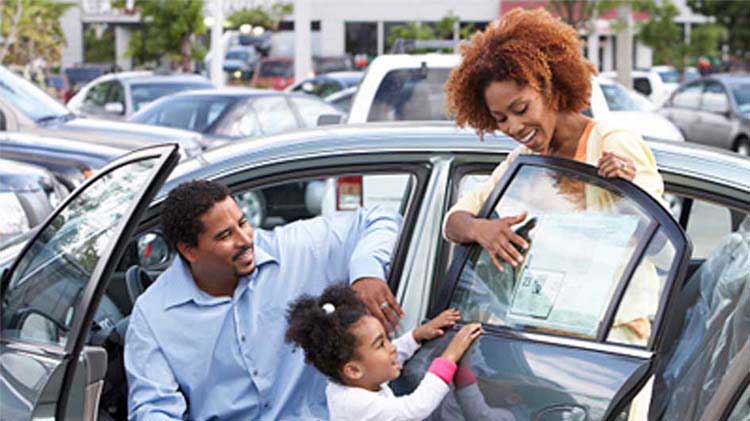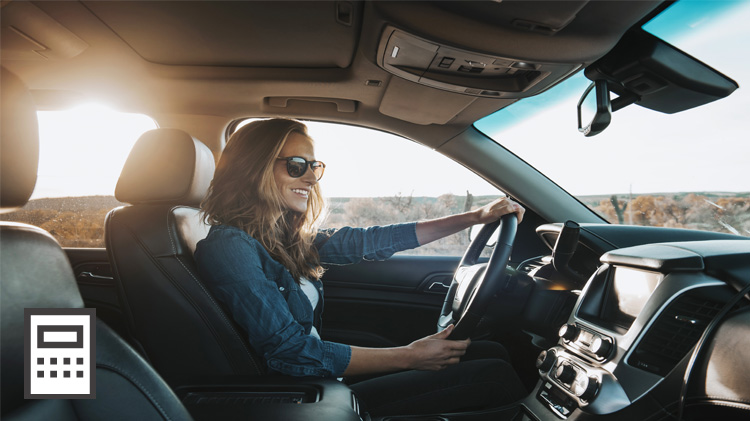How to buy a used car from a dealer or private seller
A used car is a great way to save some cash, but consider these tips before you buy.
In the market for a used car?
Buying a used car is a great way to save money and still obtain the transportation you need for work, school, or life in general. But before you make a purchase, consider these questions:
- Should I buy through a dealer or private individual?
- What are the benefits of trading in my vehicle vs selling the vehicle myself?
- How do I know the used car I want to buy is sound? Once you've decided to buy a used car, here are some tips that may help with the process.
Used car buying tips
Before purchasing a used vehicle, start with these suggestions:
- Inspect the car yourself for mechanical soundness, or have it inspected by a certified mechanic. Look for signs of wear and tear, rust, paint gouges, and other red flags.
- Buy a vehicle report from an independent service, such as CARFAX or Consumer Reports. You can learn about any serious damage the car may have sustained, such as flooding or a bent frame.
- Check official guides, like Kelley Blue Book or NADA, for pricing on the vehicle you want. Value will vary according to the make and model, age, condition, mileage, and the car's features. With this information, you can negotiate with the seller for the best price.
- Protect yourself against fraud. Before buying, check the Vehicle Identification Number (VIN) to ensure the car hasn't been reported as stolen. Also, look at the VIN tag and registration documentation to be sure they haven't been tampered with. It's wise to take extra precautions with any private sellers who want cash only or won't provide a home address and phone number.
- After purchasing your car, it's relatively easy to obtain proof of insurance and to add or replace a vehicle on your existing insurance policy.
Trading in or selling your car
For many people, a trade-in provides a convenient negotiating solution when buying a used car from a dealer. For others, selling your car on your own might be preferred. Maximize how much you might get for your trade-in vehicle by following a few key steps:
- Do your homework by taking advantage of online car appraisal tools. These tools may offer a good idea of how much your car may be worth. The key is to check multiple sites and be realistic when evaluating the condition of your vehicle; very few cars actually qualify as "excellent." Be honest when discussing your trade-in with a dealer. A service evaluation can quickly discover any service needs.
- Know how the market works. Just because an appraisal tool indicates your car is worth $5,000, it doesn't mean you'll get that amount from a dealer. To get an idea of the range of offers, visit several dealers, including at least one that is different than your car's brand.
- Use the trade-in value as a negotiation tool. If you can't get the dealer to budge on the price of a new car, you might be able to ask them to improve the total value of your trade-in as a lure for getting your business.
- Separate your car trade-in value from your car purchase. Once you agree on a value for the trade-in, make sure it's treated as credit. Then begin negotiating your new car price separately. This may help reduce the sales tax you pay on your new used car.
How to buy a used car from a dealer
When purchasing a car from a dealership, follow the steps below to get the best price on your used vehicle.
- Shop several reputable dealerships that offer certified, pre-owned vehicles. These vehicles will come with a warranty, either from the dealer or manufacturer.
- Negotiate the price before mentioning your trade-in
- Bring pre-approval documentation and necessary paperwork when closing the deal. Also, make sure to carefully review the purchase contract.
Things to do before buying a used car from a private seller
If you're considering buying a car privately - perhaps you're looking for a particular vehicle or you found a seller with the vehicle you want - follow these tips to make a private purchase a happy transaction for both sides
- Know what buyers typically pay for the particular year, make, and model you want, in the condition you want, in your local area. There may be less room to haggle with a private seller than with a dealer, but having this knowledge may help you make an offer that's fair.
- Be aware of red flags, such as a car that is priced suspiciously low or a seller that requests a wire transfer in advance. Also, always ask to see the title, which is a way for the seller to prove ownership.
- When you're ready to buy, investigate the vehicle's history by looking up a report from a service, such as CARFAX, to uncover issues the seller may not have disclosed. Private transactions are typically "sold as is," which means any post-sale problems are typically the buyer's responsibility.
- Complete a pre-purchase inspection by taking the vehicle to a reputable mechanic. The mechanic can evaluate and advise if they see a potential problem or future repair that may cost you thousands of dollars down the road.
- When completing the transaction with a private seller, get your paperwork in order and work with an escrow service to facilitate the payment, or conduct the transaction at your financial institution.
Whether you are buying a new car or purchasing a new-to-you used car, call your agent to discuss auto policy changes.



